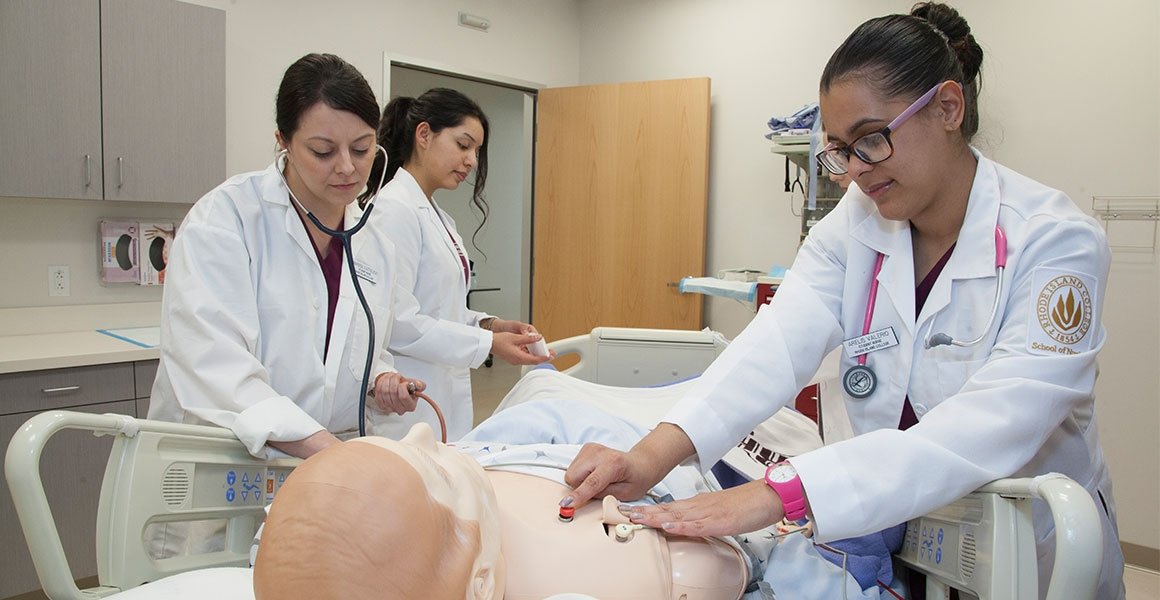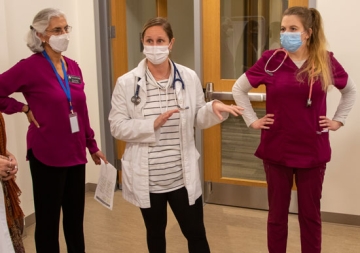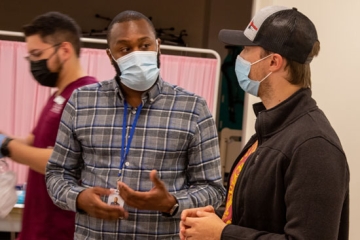
Dr. Justin DiLibero
- Interim Dean for the School of Nursing

From the Bachelor of Science in Nursing to the Doctor of Nursing Practice, the Rhode Island College Zvart Onanian School of Nursing educates and prepares graduates for the challenges of today’s complex health care settings.
Dr. Justin DiLibero, Interim Dean
Dr. Bethany Petronio-Defanti, Associate Dean
McKenzie Saunders, Assistant Administrative Officer, Undergraduate Nursing
Ellen Morais, Information Services Technician I, Graduate Nursing
The Rhode Island College Zvart Onanian School of Nursing is consistently recognized for providing the highest quality undergraduate and graduate nursing education in Rhode Island at an affordable cost.

Our highly competitive programs foster the finest in:
We educate our students using state-of-the-art technology and simulated clinical scenarios, and comprehensive clinical experience. Our faculty are committed to excellence in teaching both in the classroom and in the clinical setting.

Our pass rate for B.S.N. students on the NCLEX-RN licensure exam has consistently remained above state and national averages, placing Rhode Island College as number one among BSN programs in the state since 2015.

The Zvart Onanian School of Nursing recognizes diversity, equity, and inclusion as critical to nursing education, professional nursing practice, and the health of populations and communities. We are committed to a learning environment that embraces civility and respect, and values the sharing of differences among all students, faculty, and staff. We seek to prepare nurses who can spur system-level transformation, including addressing structural racism and systemic inequity, to promote improved health outcomes for all people.

The baccalaureate degree program in nursing, master’s degree program in nursing, and Doctor of Nursing Practice program at Rhode Island College are accredited by the Commission on Collegiate Nursing Education (http://www.ccneaccreditation.org).













“As a combat medic, I was the authority on my squad, but I won’t be that as a nurse. Nursing is more team centered, and, at RIC, caring is a culture,” says Sgt. David Fields.
Learn about the profound impact Black women leaders have had on the nursing profession and on the broader Rhode Island community.